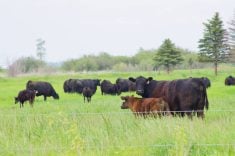Dissatisfaction with the Alberta Cattle Commission has prompted a beef
alliance to request a provincial plebiscite on the future of the
organization.
Provincial agriculture minister Shirley McClellan asked the Alberta
Marketing Council to review the Alberta Beef Council’s request for a
producer vote early in 2003.
However, the council’s request may be nearly impossible to achieve
without a regulatory change to government legislation, said Brent
McEwan of the marketing council.
Producers may petition government for a vote but requesting a massive
Read Also

House ag committee to undertake several studies
The House of Commons standing agriculture committee has set its agenda for the coming months. Members began the fall sitting with a two-hour update on international trade
restructuring to a commission in a plebiscite is outside the bounds of
the legislation for commodity groups.
“We can hold a general plebiscite, but I don’t think it will be a good
approach,” said McEwan.
In a News release
news, the beef council said it wants change because the
structure of the commission provides inadequate representation for
feedlot operators, live animal marketers or packers.
“We think one of the problems with the current structure is that it
really doesn’t represent the industry. It represents the cow-calf
industry more significantly than the others,” said Jeff Warrack, owner
of a feedlot at Strathmore, Alta., and chair of the beef council
initiative.
The cattle commission established a feeder council two years ago with a
$200,000 budget to represent feedlot concerns.
Feeder representatives from across the province were recruited but do
not have voting privileges at the commission’s annual meeting. It has
dealt with issues like cross border movement of cattle and animal
health issues.
Warrack said it has been ineffective.
“It was a rubber stamping process for work that was done already. No
new recommendations came forward,” he said.
The council has a proposed budget of $300,000 for the 2003-04 fiscal
year.
Feeder council chair Glen Thompson agreed there are sectors that feel
neglected but he is not convinced an expensive plebiscite is the best
choice.
“There are very few issues where we can’t find some common ground that
would be good for the total industry and not just one sector,” said
Thompson.
The beef council initiative held a series of meetings across the
province this fall talking to producers. Nearly 400 attended and when
polled, about 75 percent said they want a new approach offering broader
representation to beef producers, feedlot operators, processors and
auctions.
The council proposes an association that draws membership from all beef
industry groups.
Each sector would form a council that sends directors to a board that
oversees industry policy, lobbying, promotion, research and education
initiatives. A refundable checkoff on all animals sold within the
province would support the organization.
Cattle commission chair Greg Conn worries the council’s proposition is
too radical.
“Their whole idea makes assumptions that we are not doing a good job
now,” said Conn.
“It comes down to power to control the producer checkoff.”
The cattle commission collects and administers about $10 million
annually from a $2 levy.
Major changes to the commission could affect the Canadian Cattlemen’s
Association as well.
The commission forwards $1 per animal sold to the national checkoff
agency and provides an additional $600,000 annually for other CCA
programs.
That assessment is based on the number of cattle per province.
Conn said if the vast majority of producers want change, they must
determine the direction.
The commission was asked to join talks with the council but declined.
It was also asked to pay between $130,000 and $200,000 for an industry
study but rejected the request because it did not approve of the
council’s approach.
The commission has proposed setting up a beef forum to include
representation from the marketing and processing sectors.
“We sincerely feel we are trying to do the best for the producers of
this province,” said Conn.
“There will always be someone who disagrees. This is a democracy.”

















